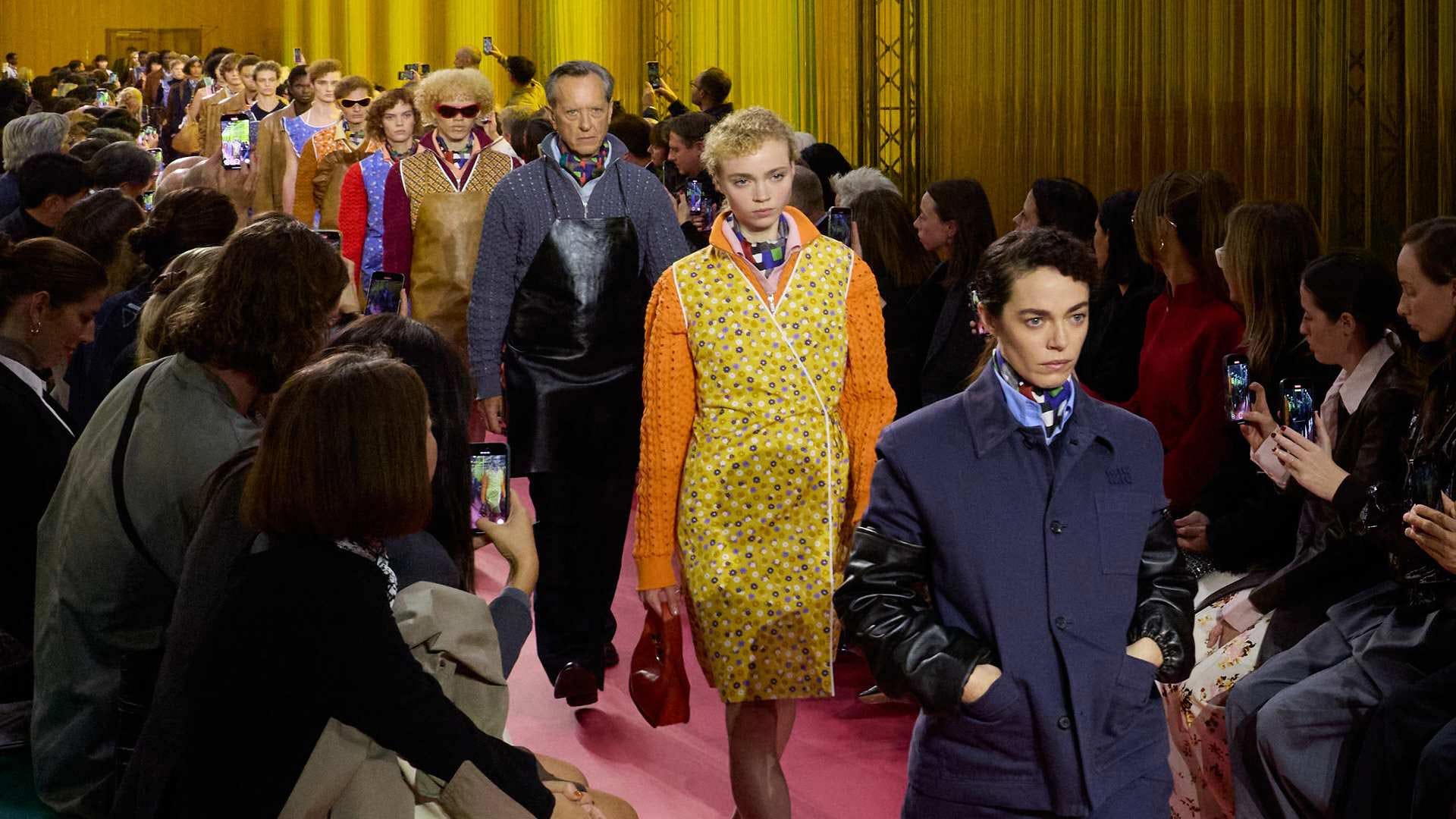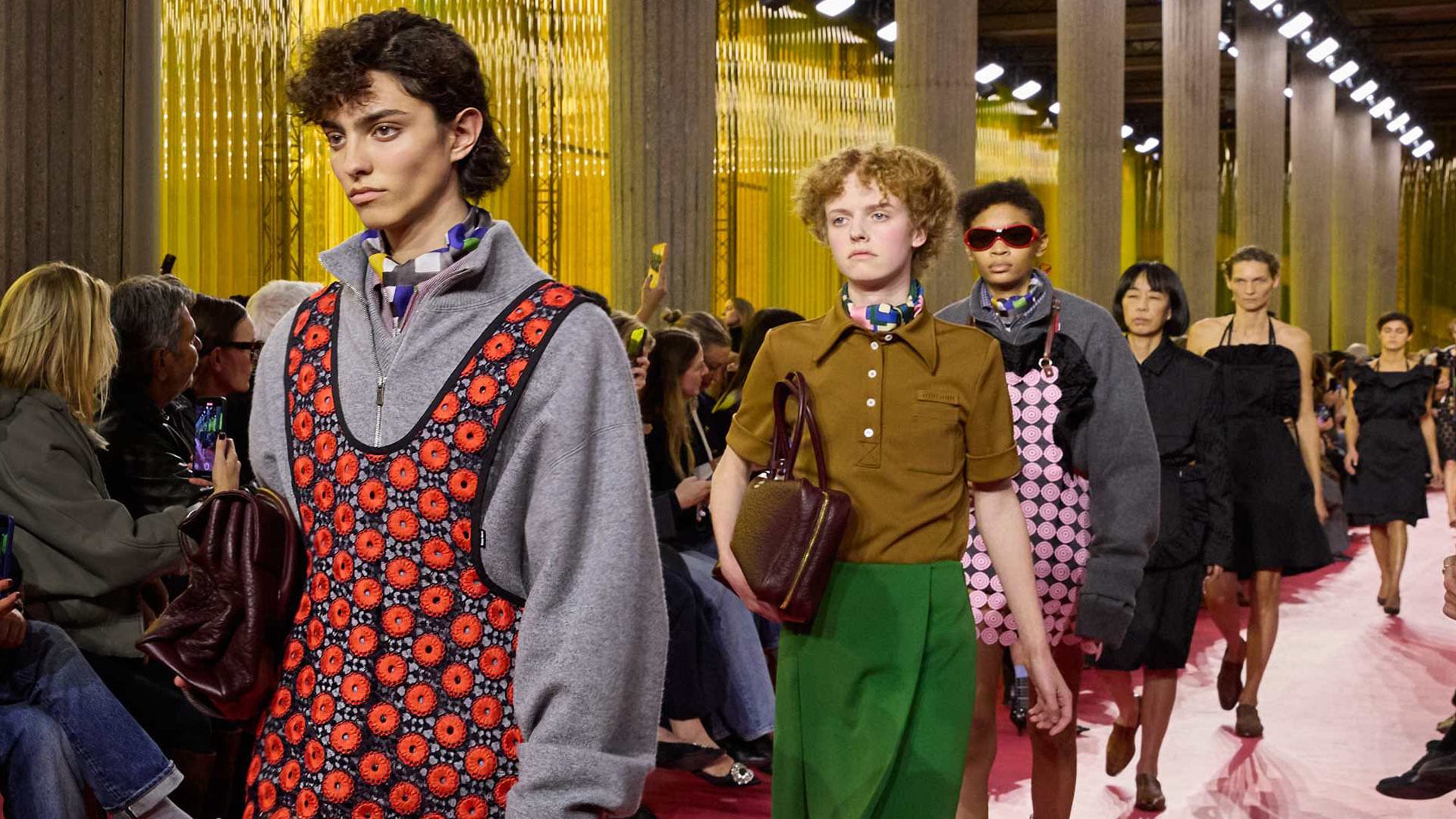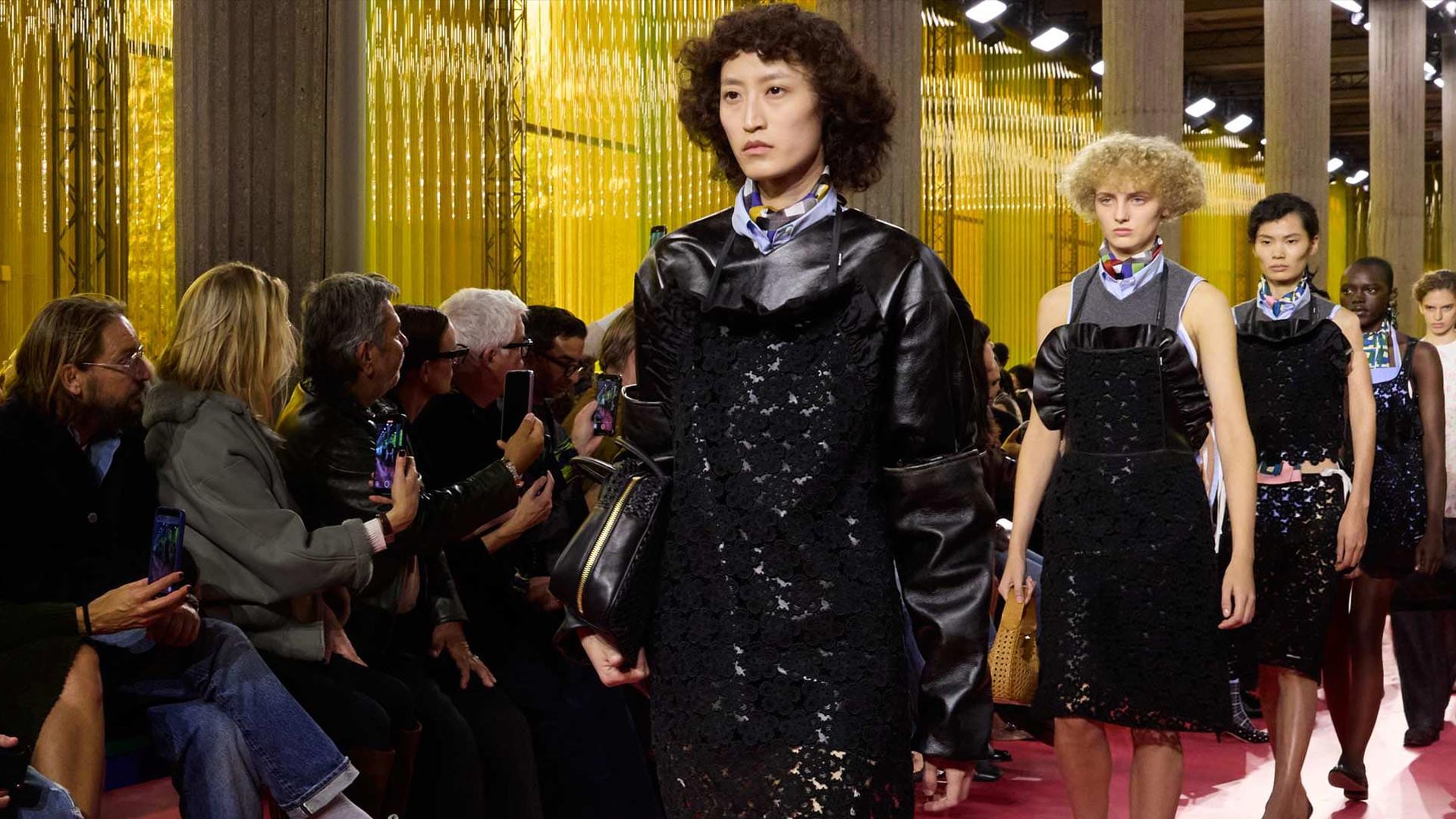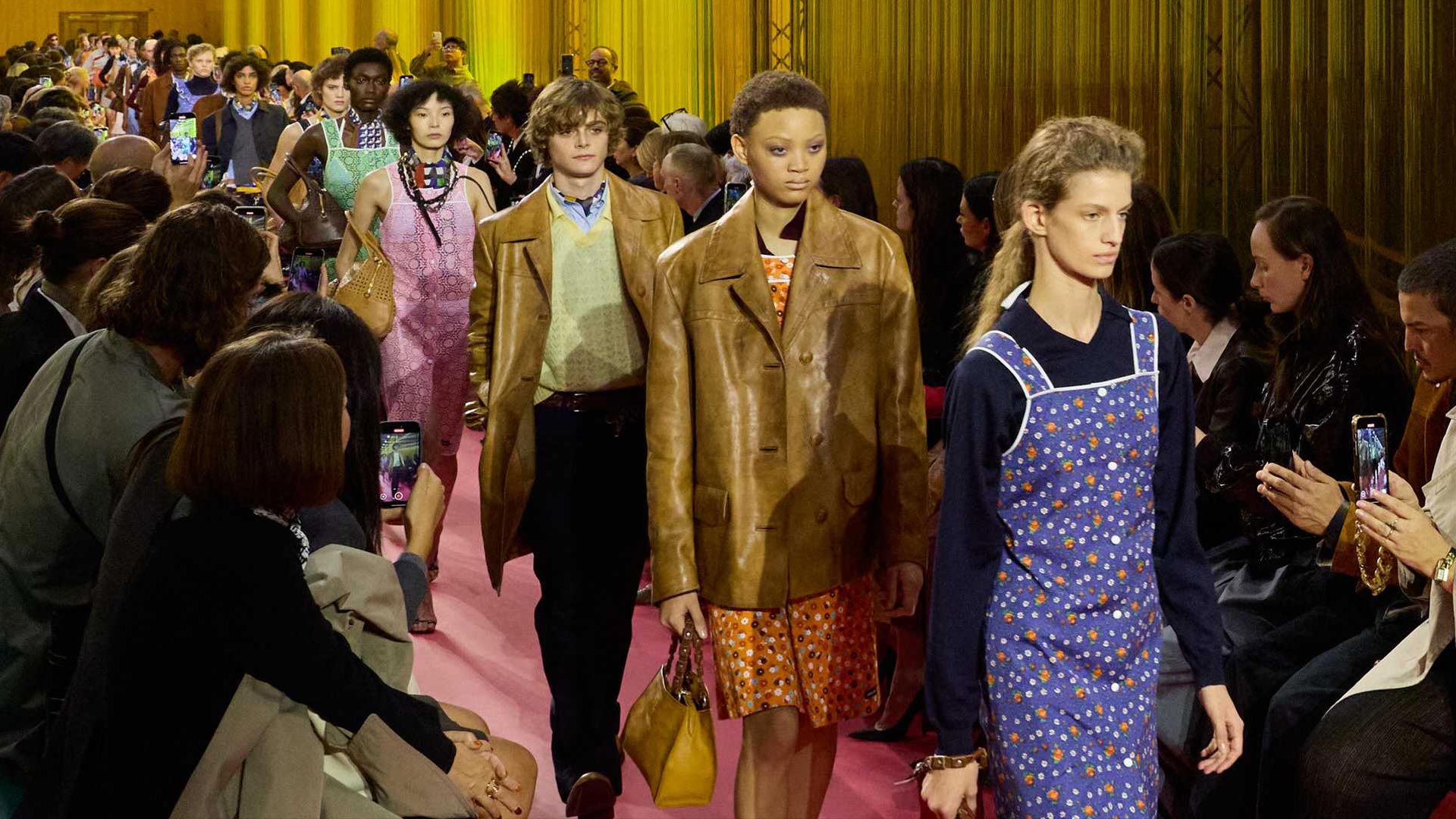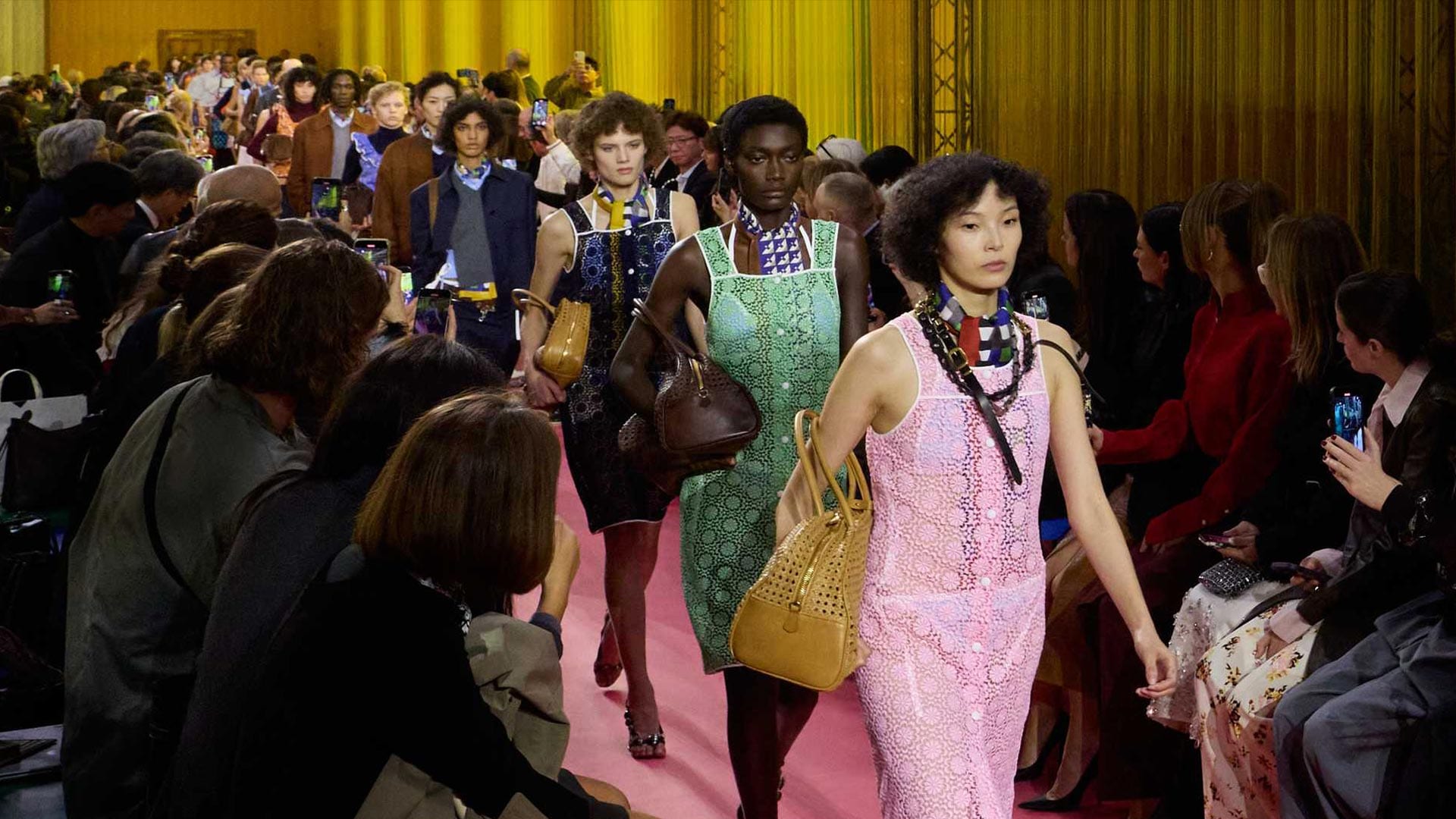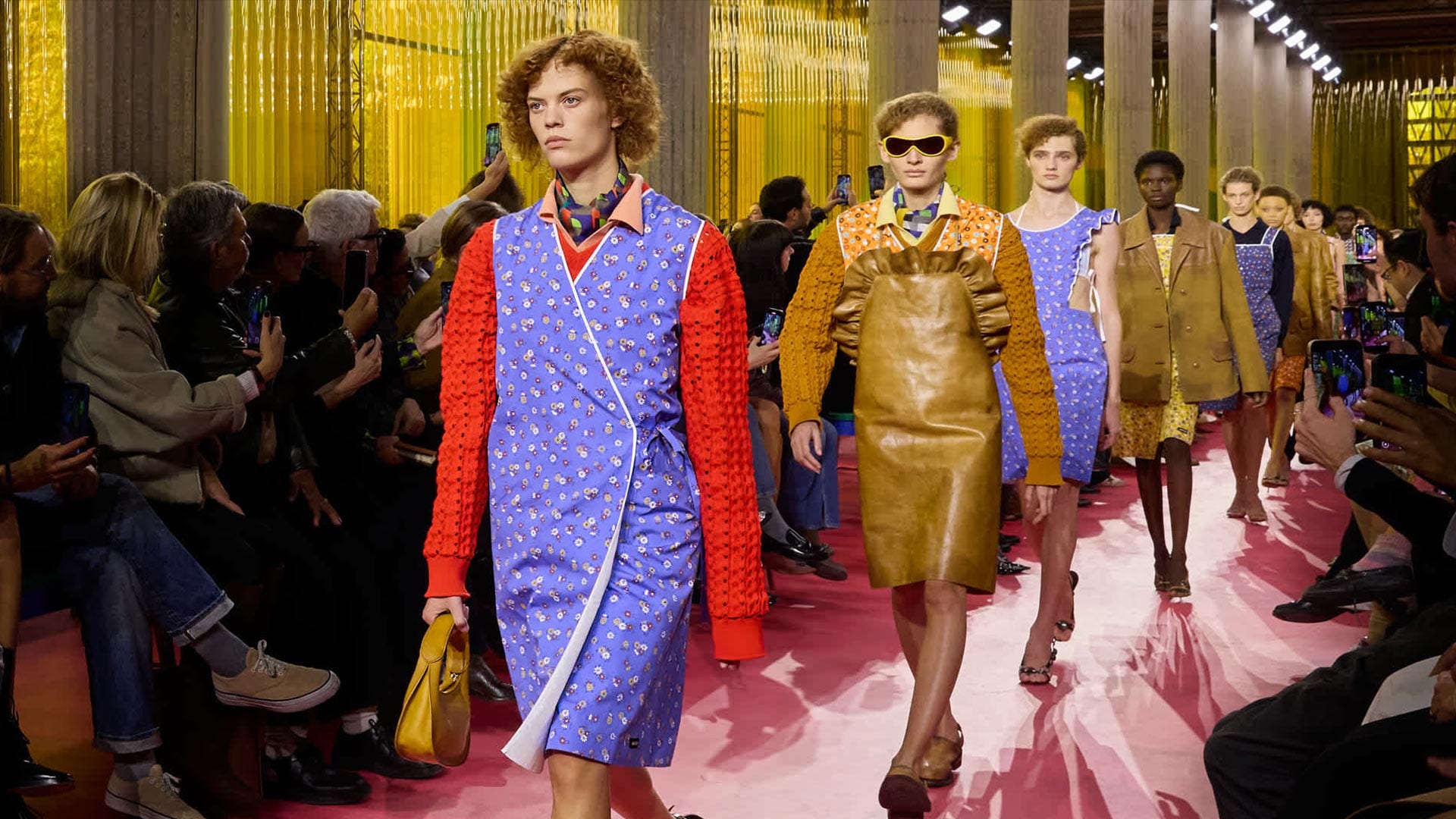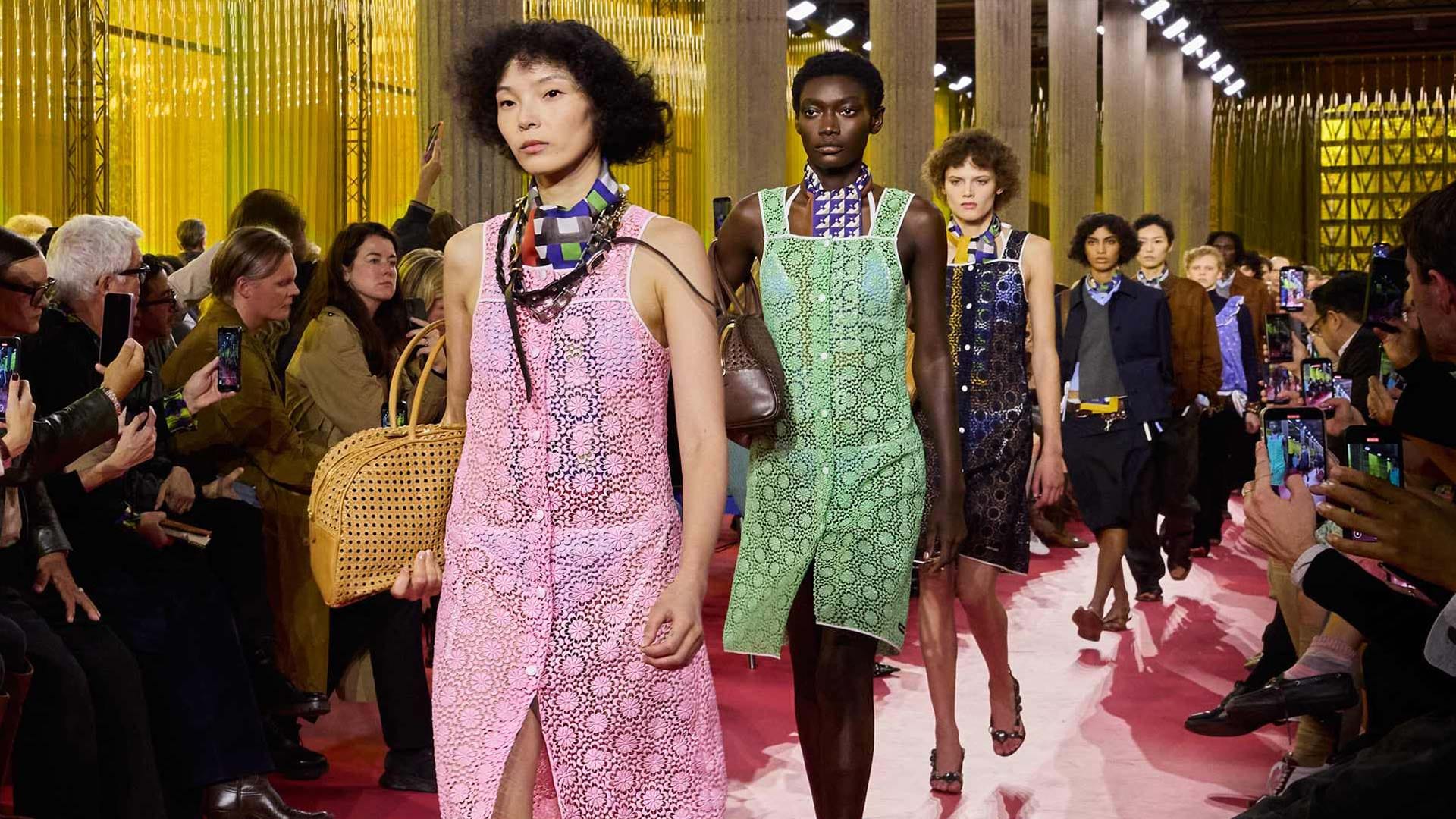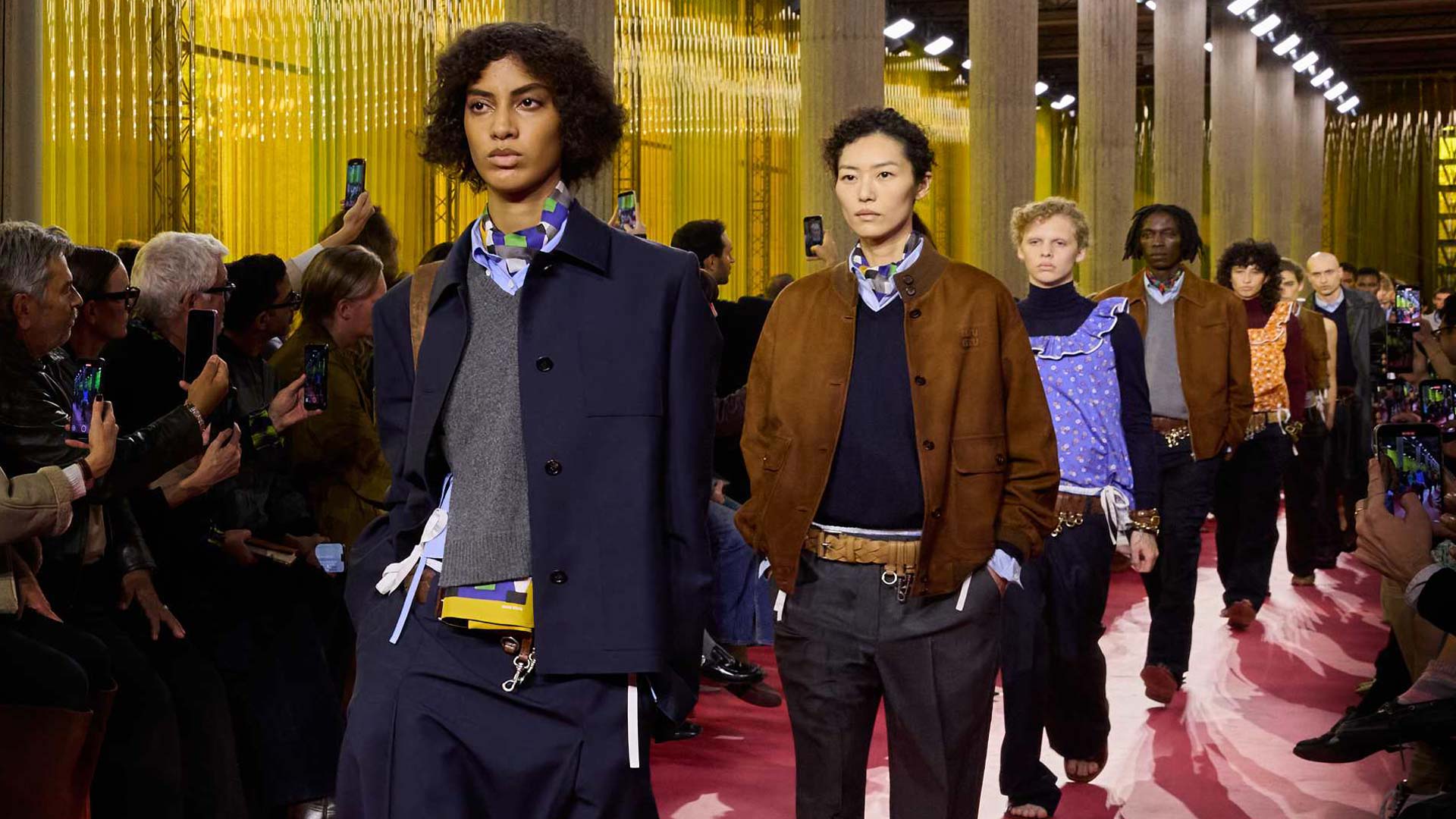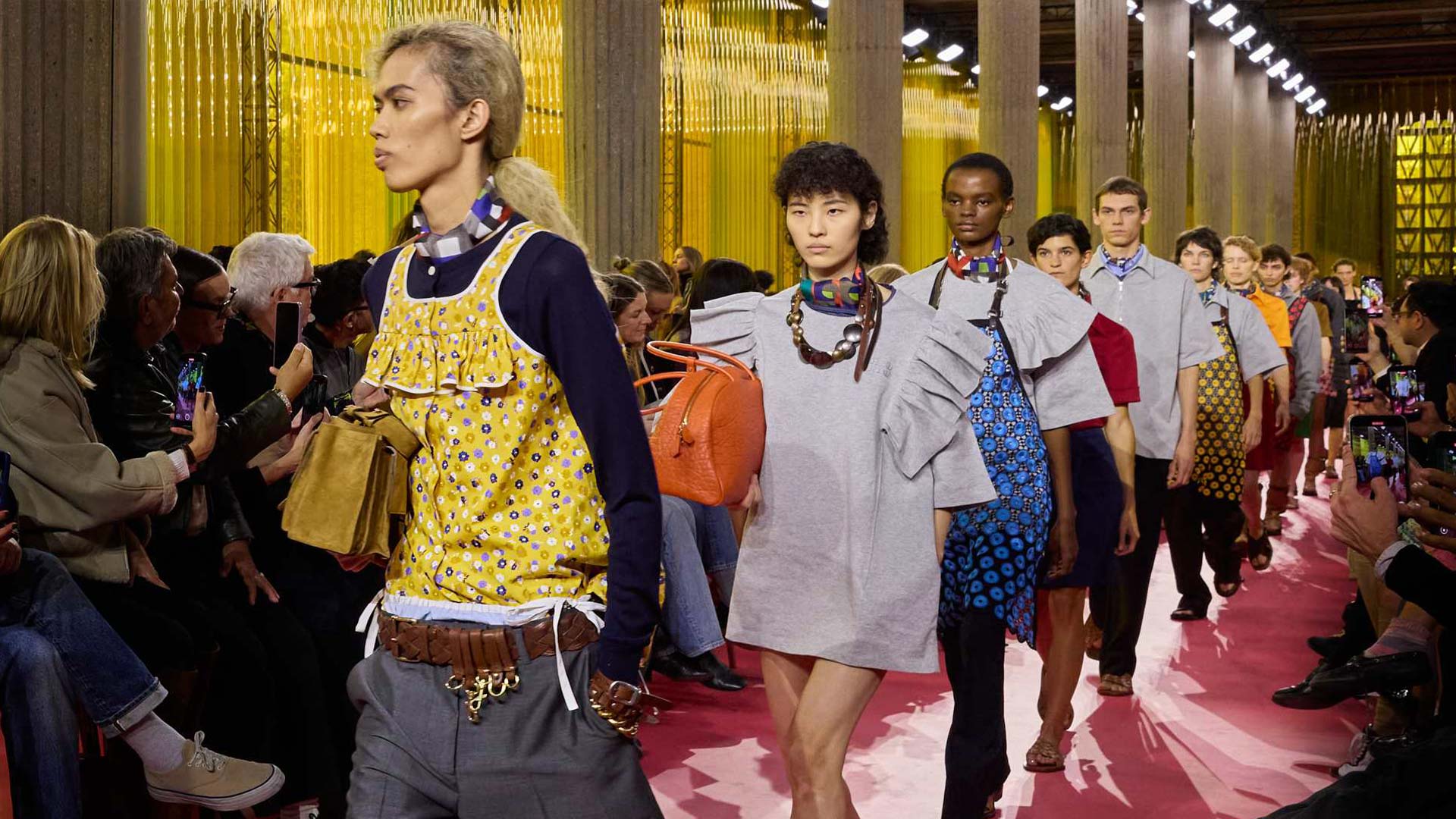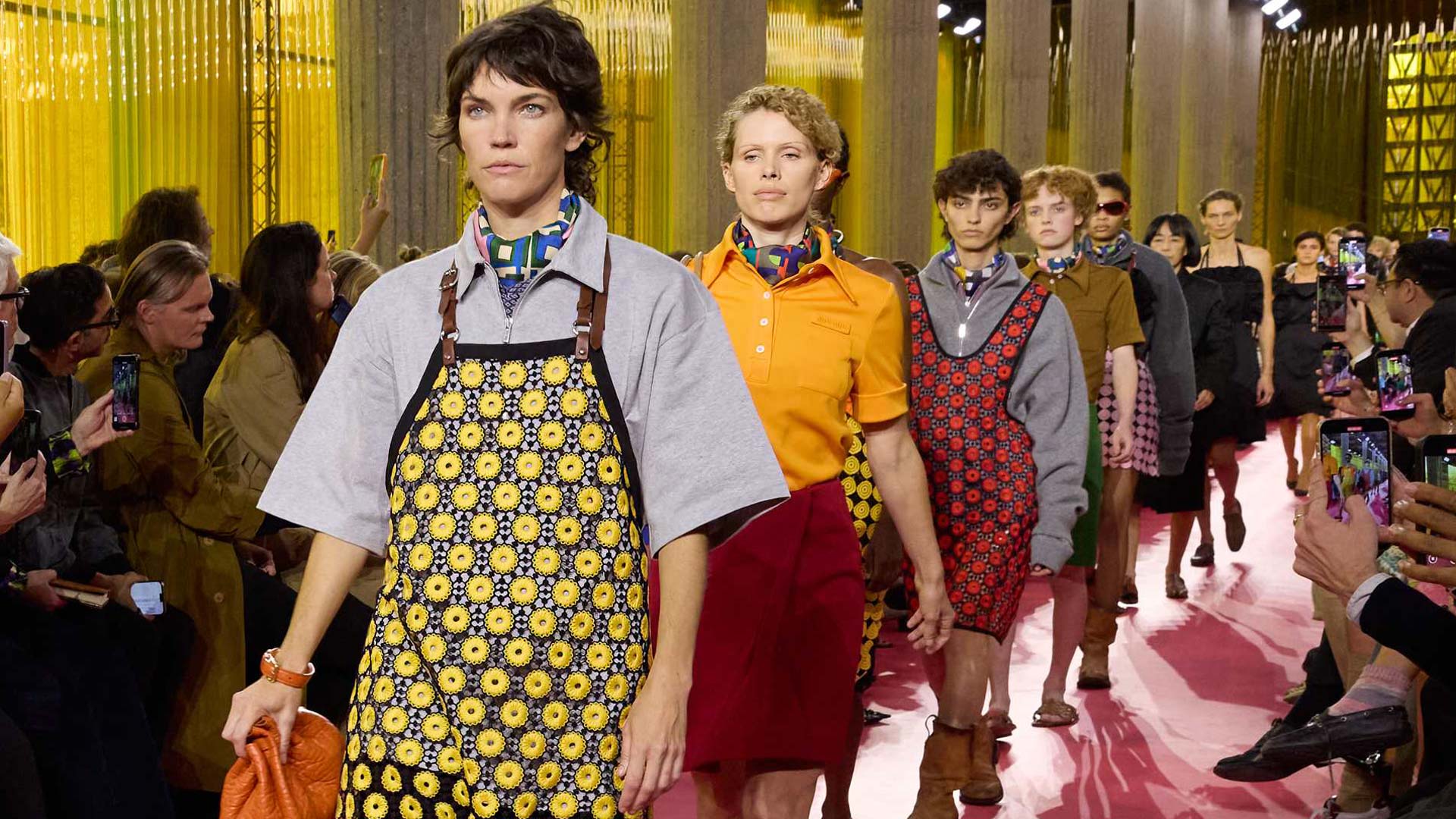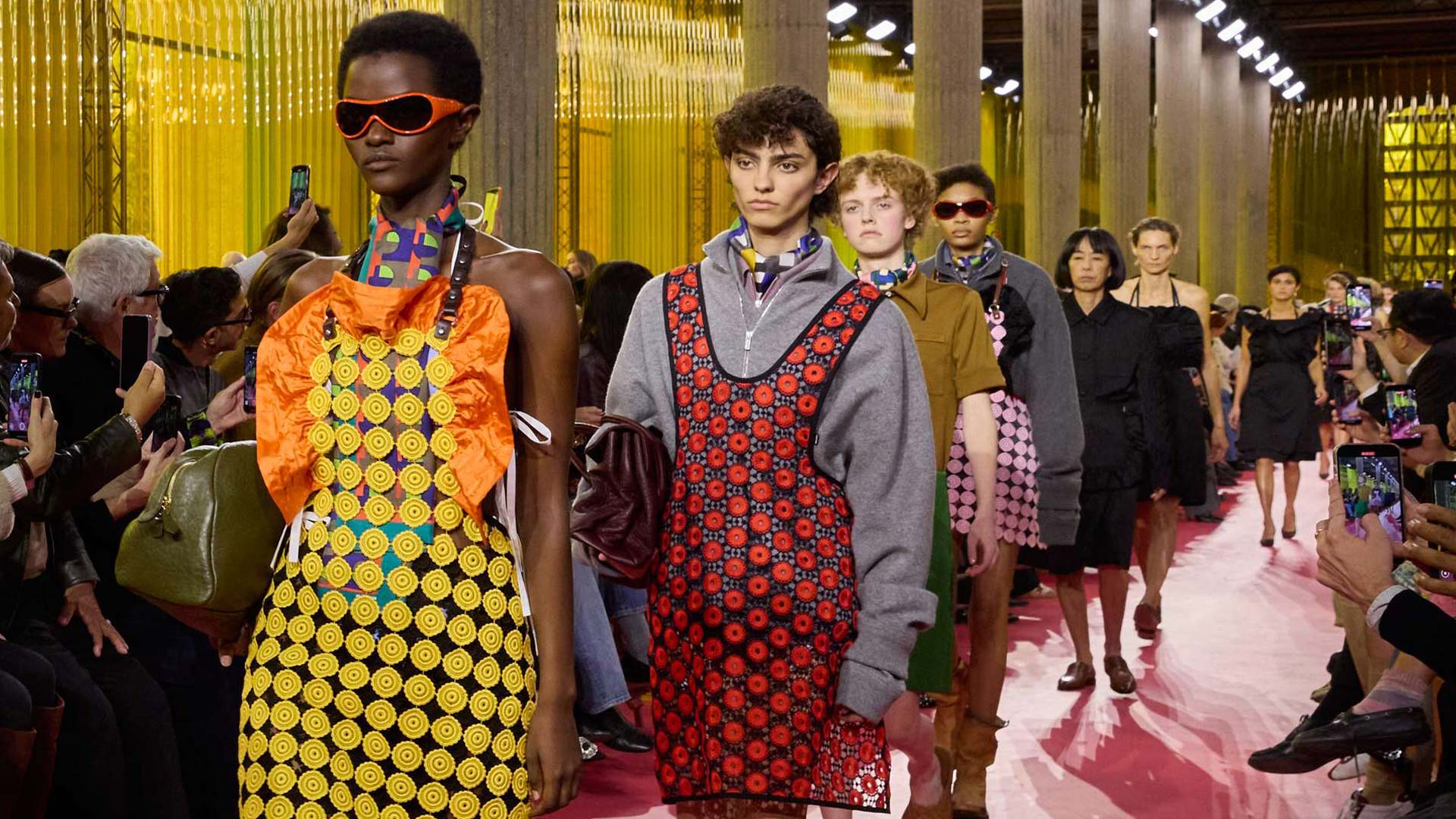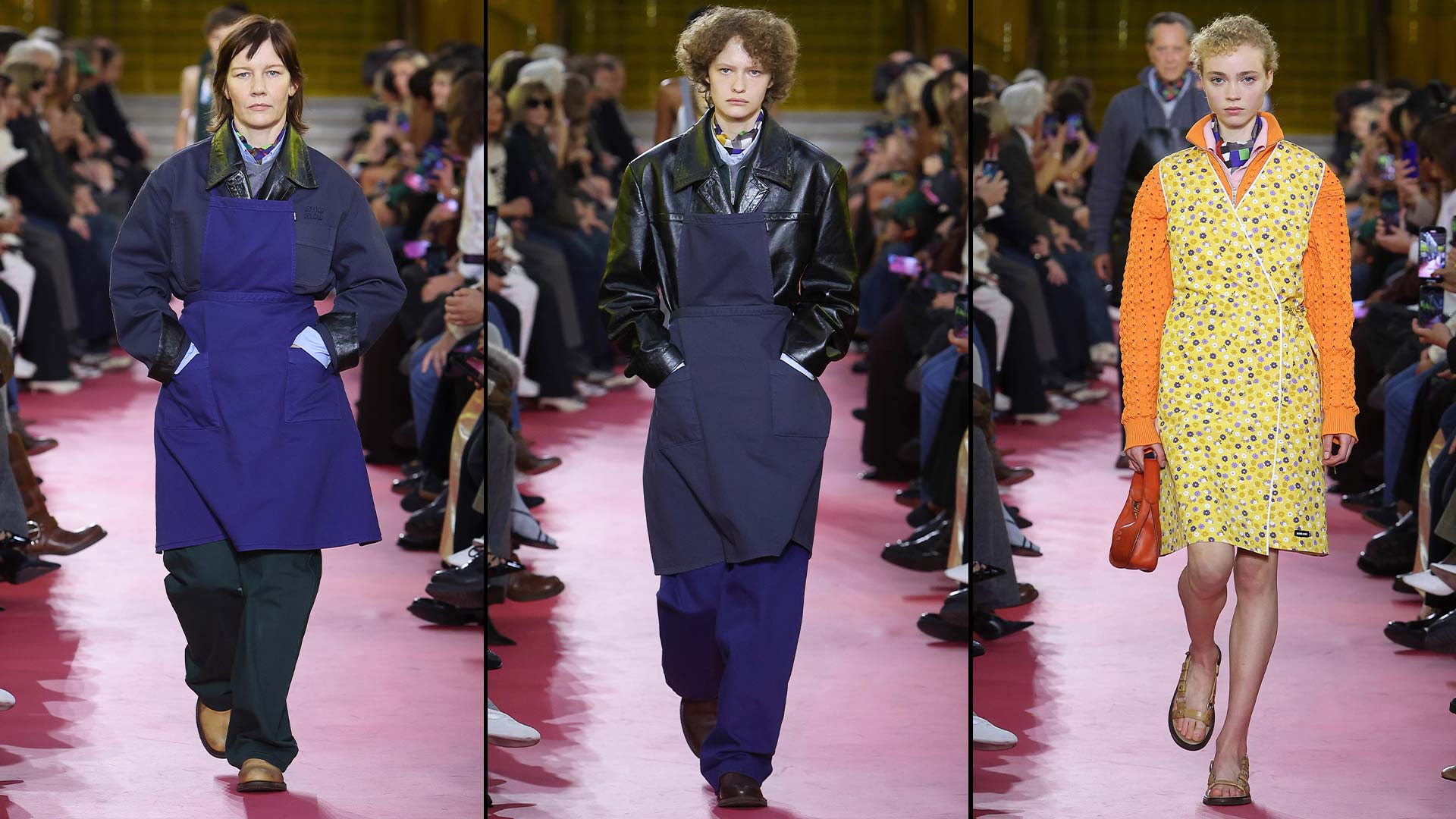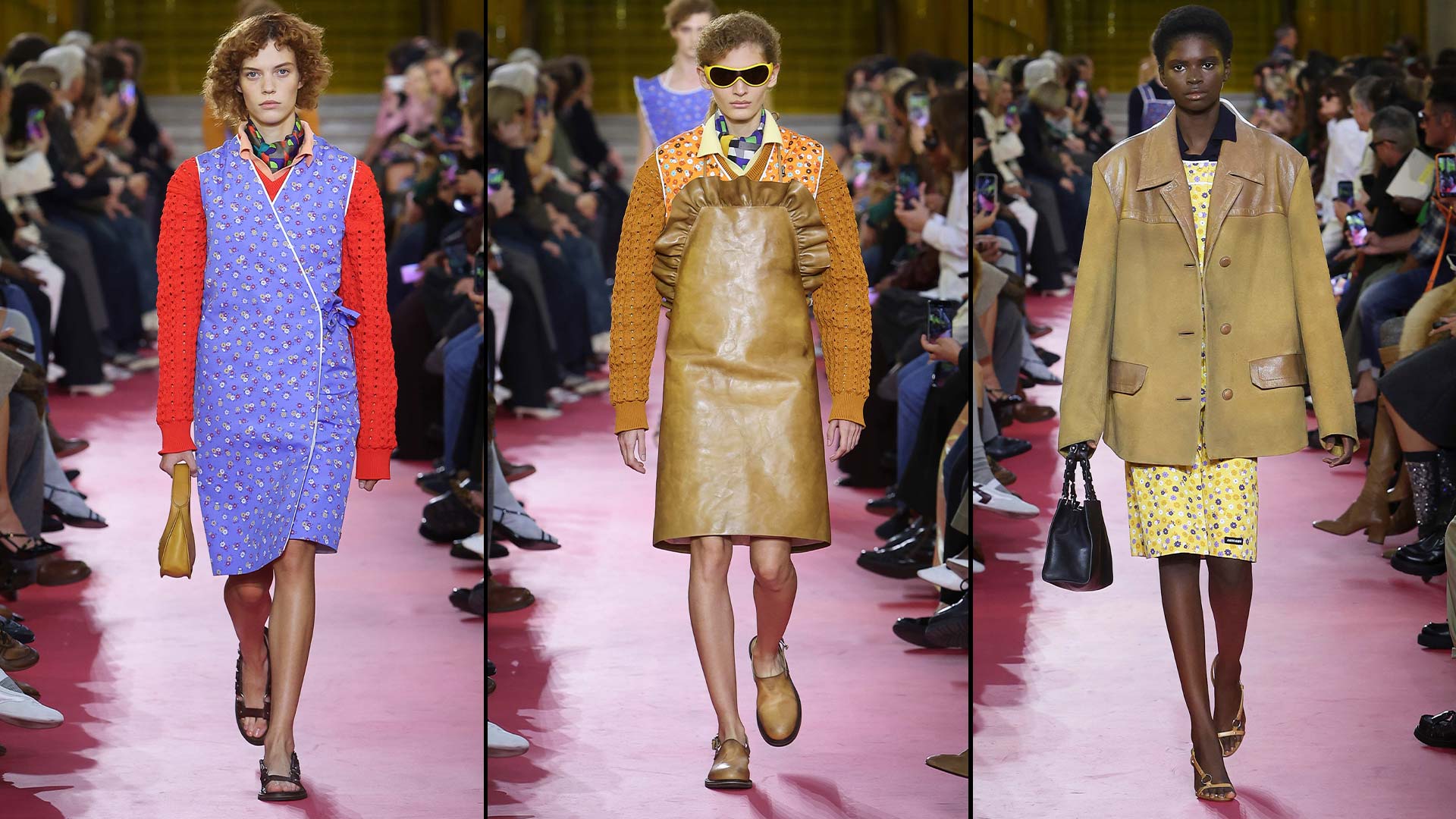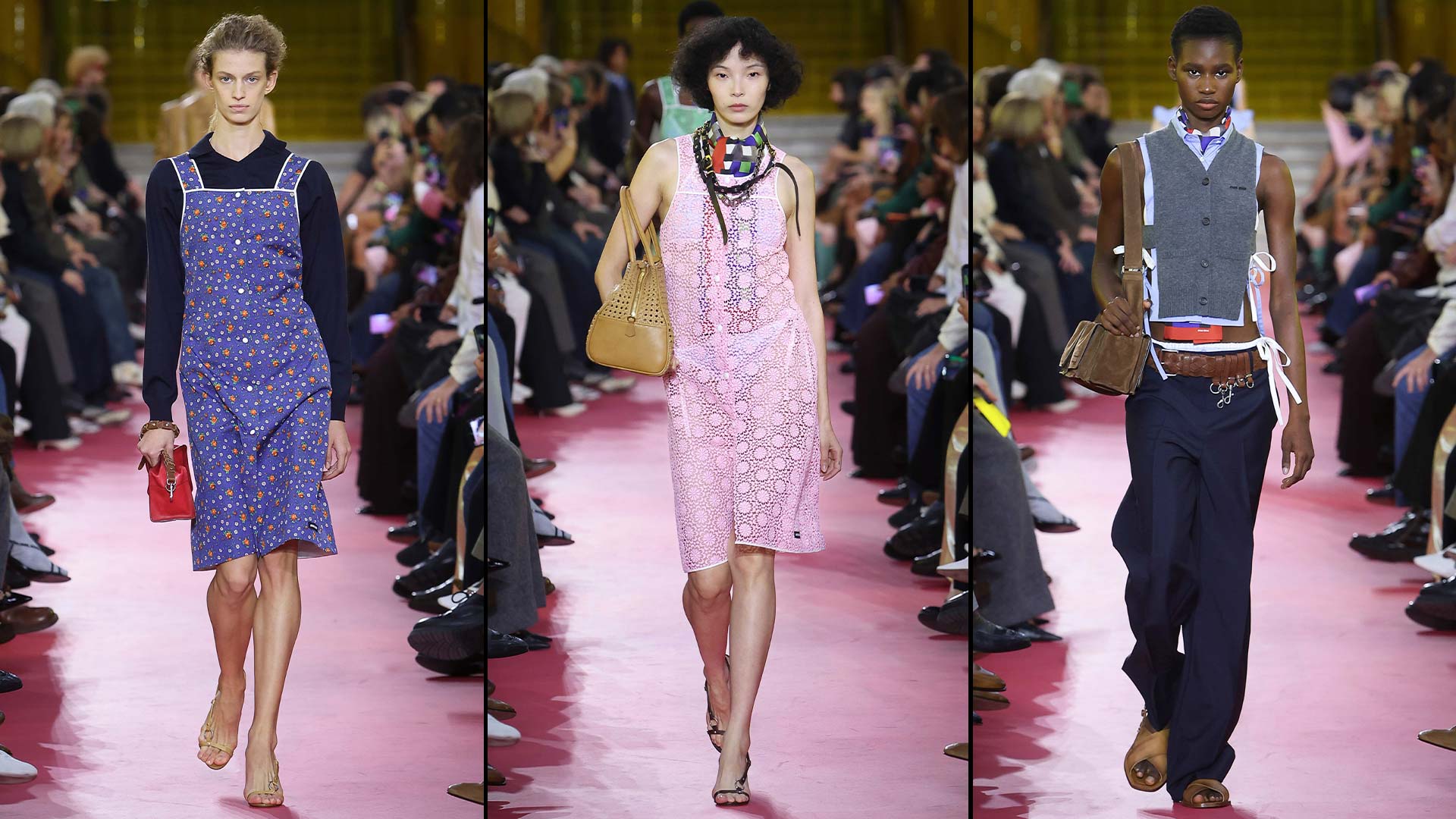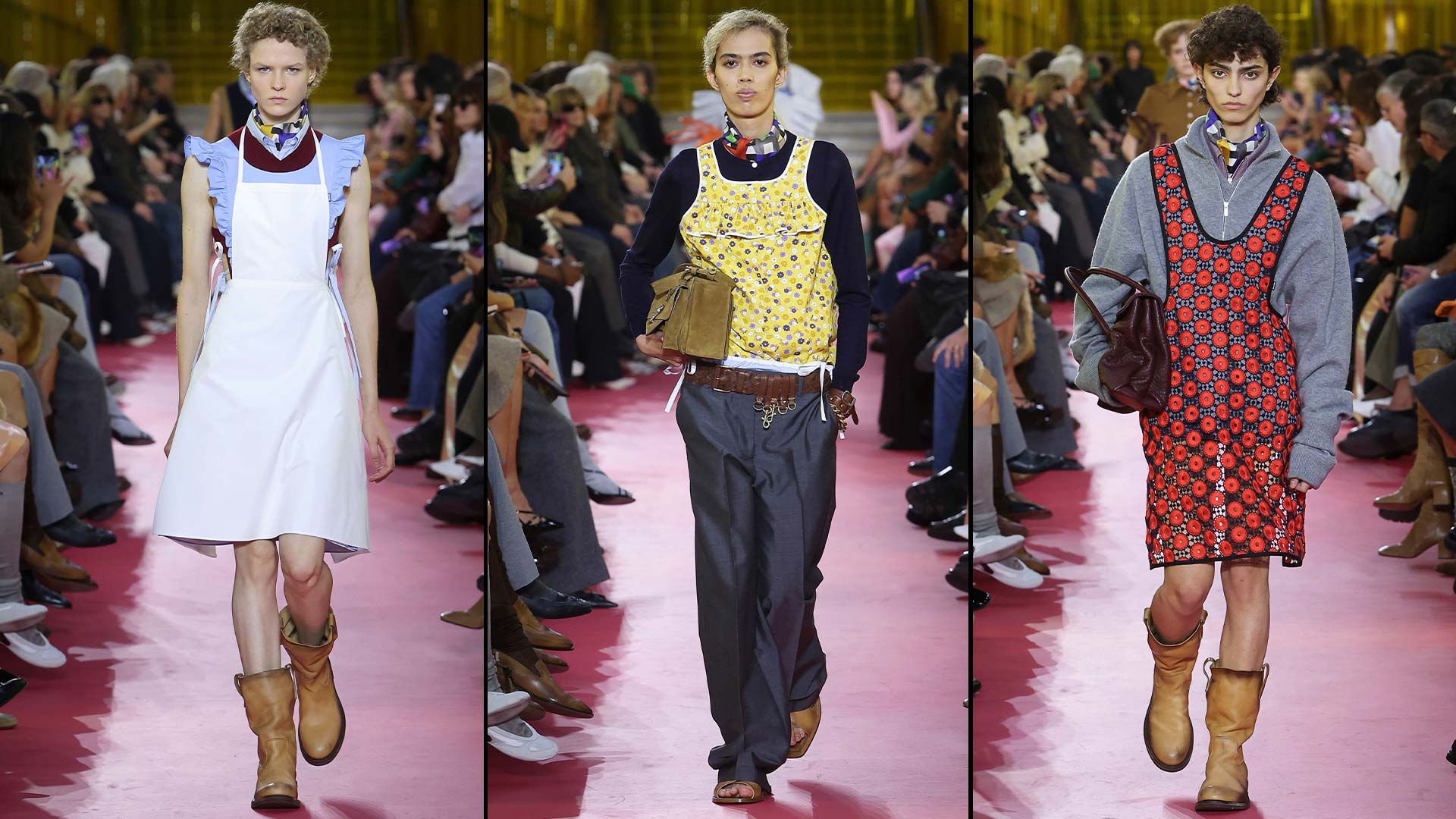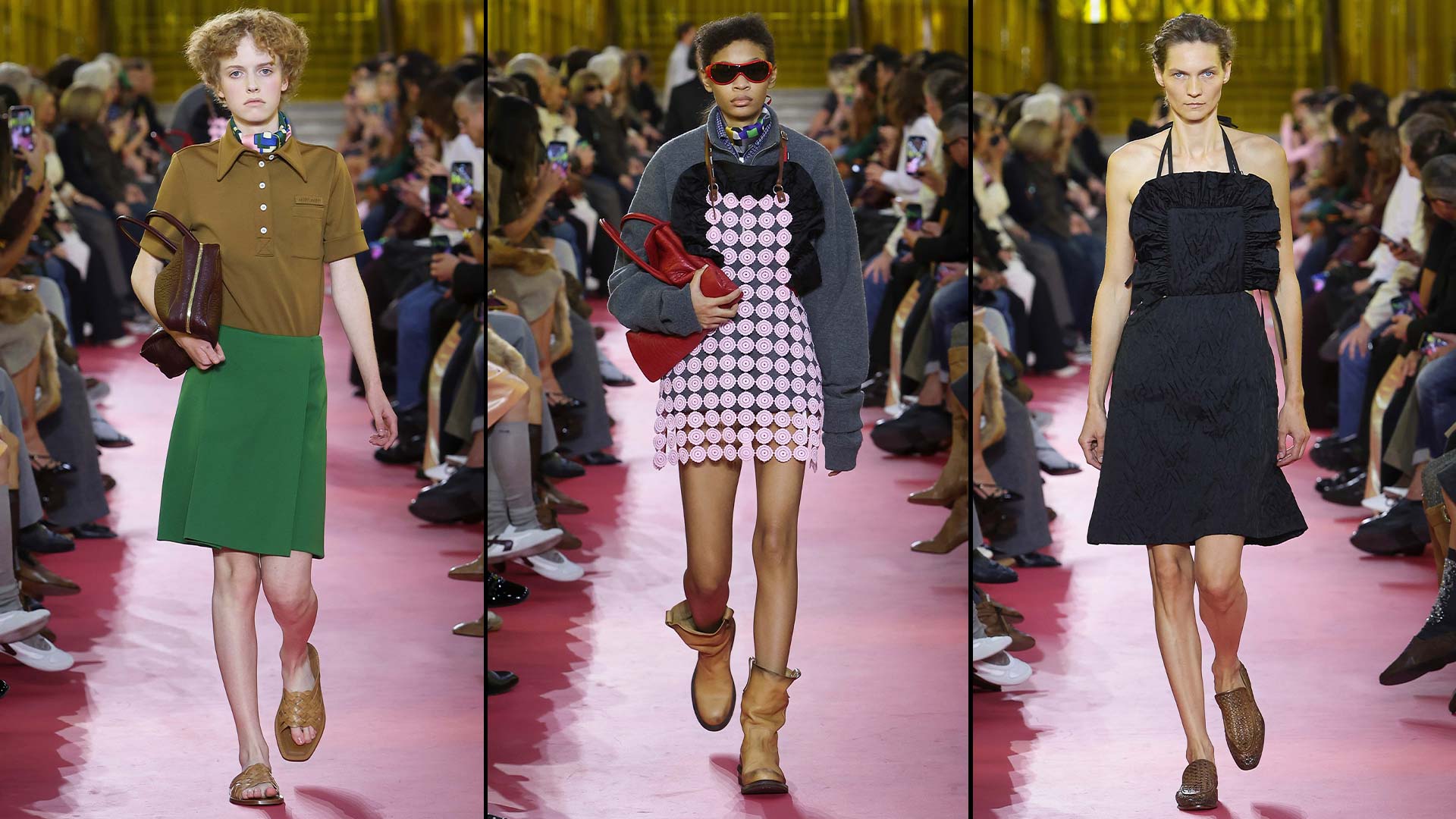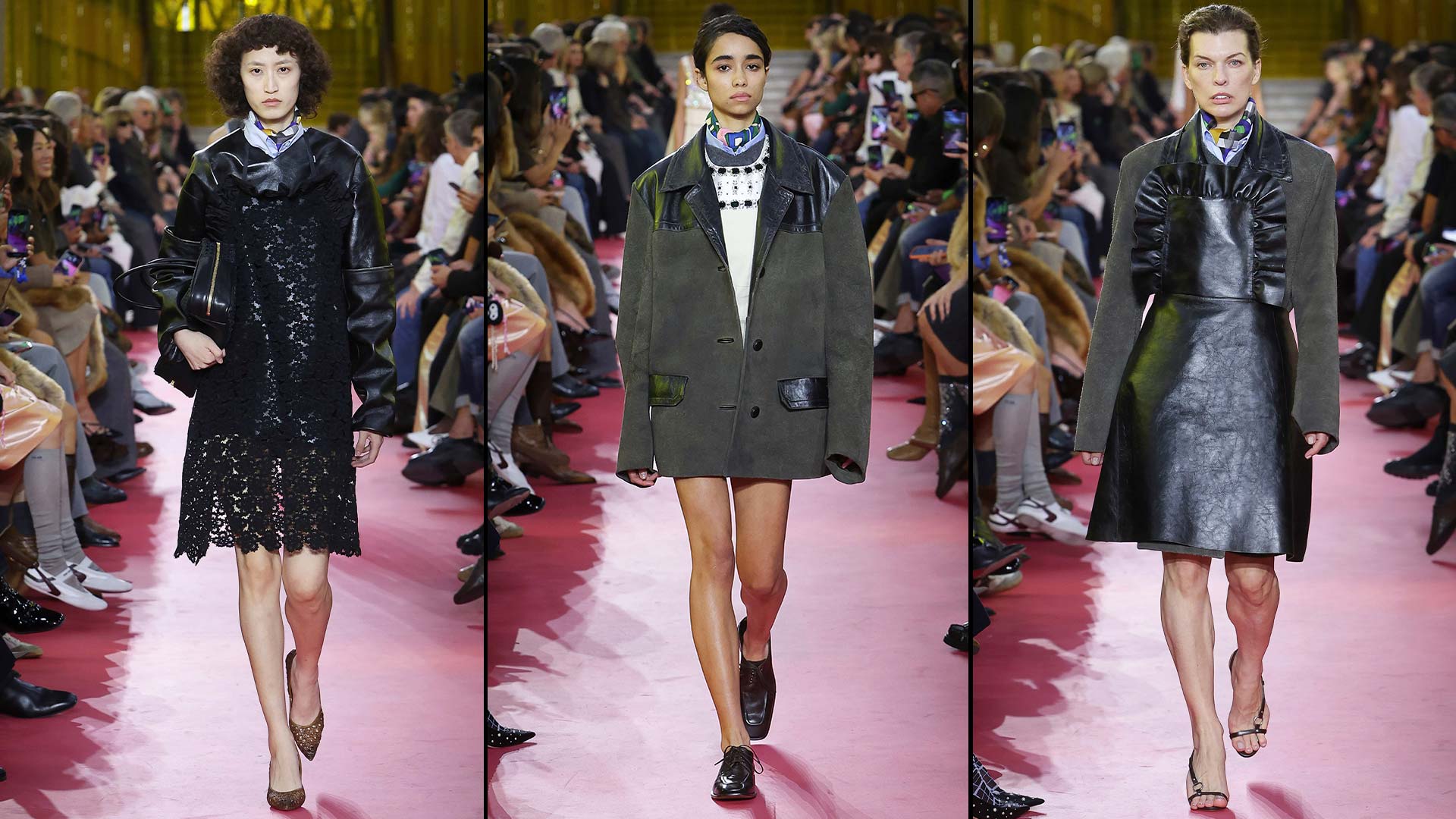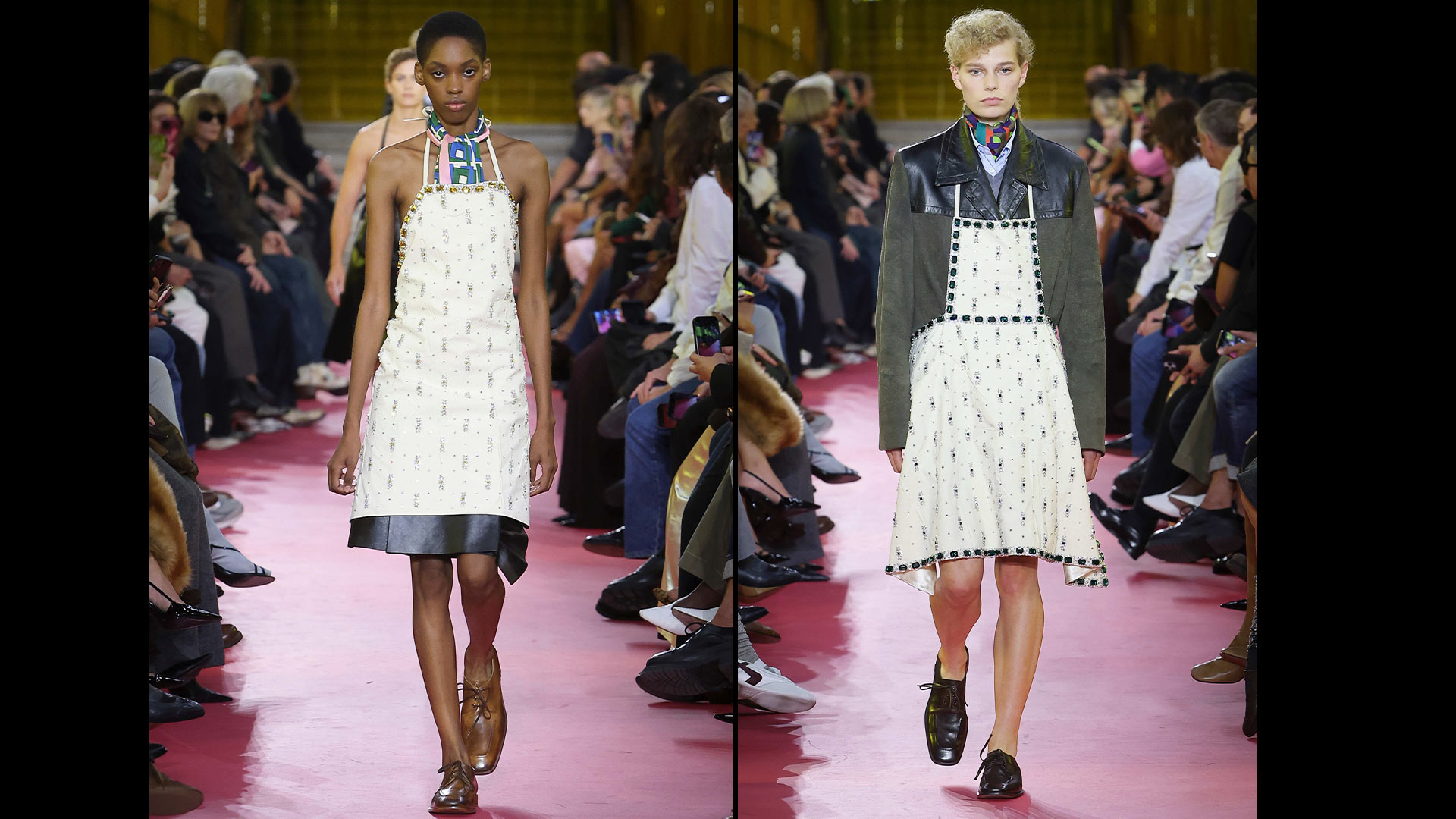The importance of work. Its significance, its relevance and meaning. The Spring/Summer 2026 Miu Miu collection by Miuccia Prada is a consideration of the work of women – their challenges, adversity, experience. Its invisibility is confronted and addressed, recognized and valorized.
Work as an expression of effort. Work as a symbol of care and love. Work as a reflection of independence, a means of agency. The apron, as a universal symbol of work, is afforded a nobility and respect. A reflection on function and purpose, the apron can be simultaneously utilitarian and decorative. Cultural meanings of this garment can shift radically according to changes in materialization and form – from domiciliary to clinical to industrial, physical labor to care-giving, primary and tertiary industries and the domestic sphere. A single garment containing multitudes.
Moving between these inherited aesthetic citations, sentiments transpose. An observation of factory work in the documentary photography of Dorothea Lange (1895-1965) and Helga Paris (1938-2024) provides a perspective on a reality of clothes. Industrial drill and leather, cotton poplin, silk cloqué, lace, raw canvas embroidered. Shoes, handbags, accessories reflect, in muscular leathers, a notion of robustness and utility, an industrial beauty. Ruffles – the most basic symbol of the feminine – have a transformative effect. Toughness and sweetness. A challenge and inversion of societal definitions, ramifications and expectations.
The show scenography transforms the hypostyle of the Palais d’Iéna – itself a place of work into an abstraction of everyday domestication. It is punctuated by field of Formica tables in contrasting shades.
“I want to talk about women’s work, using my work. Women’s work – from factories, to service, to care-giving and the home. Across all, the apron as a symbol of work that can express multiple messages and ideas about all these different genres of work. And deeper, it talks about the effort and challenges of women.”
“The apron is my favorite piece of clothing – it is something I have been obsessed with, from before even my earliest collections, and it has always been present in Miu Miu. This is the first time we have made it the focus of a collection. The apron fascinates me as an emblem. It symbolizes women, from factories through to serving to the home. It is about protection and care – for me, it is a symbol of the effort and hardship of women.”
“This collection was the result of an enormous amount of research, into reality, reflections of real dress. The photography of Dorothea Lange and Helga Paris, documenting working women across the last century; Louis Malle’s film Humain, trop Humain (1974). Luis Buñuel’s Le journal d’une femme de chambre (1964) – while fiction, has a root in reality. We observed them all. Malle filmed in the Citroën factory in Rennes in 1972 – that is a true window into the lives of women.”
Miuccia Prada

